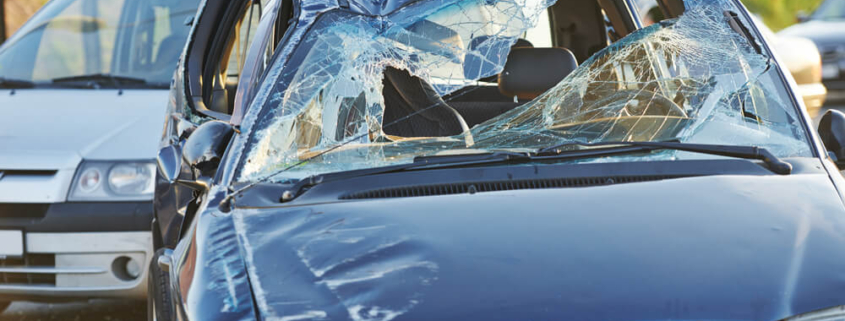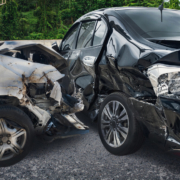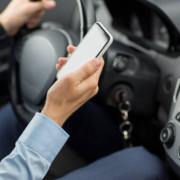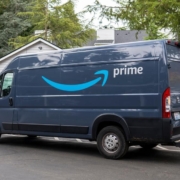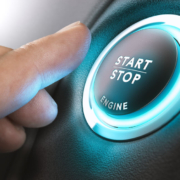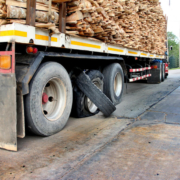Determining Liability when a Third Party Causes a Car Accident
There are millions of auto accidents in the United States each year, and most of them are the result of some type of negligence. In fact, a Stanford University analysis concluded that at least 90% of all motor vehicle crashes are caused at least in part by human error. But human error can mean a number of different things.
In addition to driver negligence, there are several third parties that could be responsible for a car crash. And understanding which parties may be at fault and what is necessary to hold them accountable opens up additional legal avenues from which an accident injury victim can recover compensation.
Claims against third parties are typically more complicated and difficult to pursue than a standard vehicle crash, however. For this reason, it is very important to work with an attorney who knows what to look for in these types of cases and has the proven ability to ensure that all responsible parties are held fully accountable.
If you have been injured in an auto accident in West Virginia, you can trust the attorneys at Bailey, Javins, and Carter L.C. to aggressively pursue maximum compensation on your behalf. Call us today at (800) 497-0234 or (800) 296-6979 or message us online for a free consultation and case assessment.
Third Parties that May Be Responsible for a Car Accident
Employers
If an individual who is driving a company vehicle causes a vehicle crash, the company could be held liable for the accident if the employee was performing work duties during business hours. This liability may extend to an employee who is driving a personal vehicle if the employee is acting within the course and scope of his/her employment.
It is important to note that even if a company claims that the driver is an independent contractor and not an employee, there are cases in which a driver is misclassified and actually meets the legal definition of an employee. This type of situation has been known to happen frequently in the trucking industry, where the lines between an independent contractor and employee are often blurred.
Rideshare Companies
Ridesharing companies such as Uber and Lyft maintain that their drivers are independent contractors, and most states have agreed with this classification for now. But someone who is injured because of a rideshare driver’s negligence can still file a claim against the rideshare company’s insurance policy under certain circumstances. For example, ridesharing companies maintain $1 million of liability coverage for when one of their drivers is transporting a passenger. However, there is a lot less coverage available when an Uber or Lyft driver has their app turned on but does not have a passenger in their vehicle.
Auto Repair/Maintenance Providers
A vehicle repair shop could potentially be held liable for an auto accident if the car malfunctions after being recently serviced there.
Product Makers
When a design or manufacturing defect causes an auto accident, the manufacturer, distributor, and other parties within the faulty product’s supply chain could be held responsible. Examples of product defects that could result in a vehicle accident include brake failures, tire blowouts, and computer malfunctions that cause sudden vehicle shutdowns.
Car Owners
If a person entrusts their vehicle to someone else who is inexperienced, intoxicated, or is known to be a dangerous or unfit driver, the car owner could be held liable under the legal theory known as “negligent entrustment”. Liability could also extend to parents and grandparents who allow their child or grandchild to drive their car even though the child does not have enough experience or is known to be reckless or incompetent.
Liquor Establishments/Providers
West Virginia courts have held that a bar, liquor store, or similar establishment can be held liable for personal injuries caused by someone who is physically incapacitated by drinking. In a case like this, it would need to be established that the person the establishment served alcohol to was “visibly intoxicated.” Video footage and eyewitness testimony can be very helpful in proving this claim.
Third-Party Liability Accident Claims in West Virginia
As we talked about earlier, holding a third party liable for a personal injury is far more difficult than establishing negligence on the part of someone who was directly involved. An extensive investigation is necessary to uncover all of the important facts and pieces of evidence in order to determine the root cause (of the injury) and all contributing factors.
West Virginia’s statute of limitations for personal injury claims is two years from the date of the injury (in most cases), but the sooner you get an experienced attorney involved, the better your chances of recovering the full and fair compensation you deserve. At Bailey, Javins, and Carter L.C., our attorneys are ready to go to work for you! Get in touch with us today at (800) 497-0234 or (800) 296-6979 to schedule your complimentary consultation.

